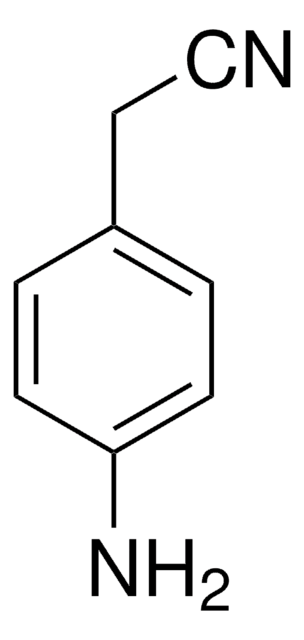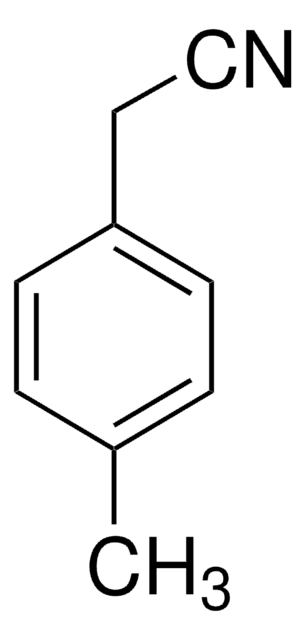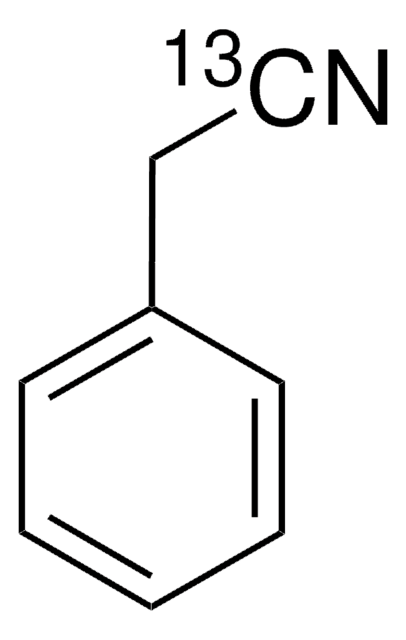12608
Benzyl cyanide
analytical standard
Synonym(s):
Benzyl nitrile, Phenylacetonitrile
About This Item
Recommended Products
grade
analytical standard
Quality Level
vapor pressure
0.1 mmHg ( 20 °C)
Assay
≥98.0% (GC)
shelf life
limited shelf life, expiry date on the label
refractive index
n20/D 1.520-1.526
n20/D 1.523 (lit.)
bp
233-234 °C (lit.)
mp
−24 °C (lit.)
density
1.015 g/mL at 25 °C (lit.)
application(s)
cleaning products
cosmetics
environmental
flavors and fragrances
food and beverages
personal care
format
neat
SMILES string
N#CCc1ccccc1
InChI
1S/C8H7N/c9-7-6-8-4-2-1-3-5-8/h1-5H,6H2
InChI key
SUSQOBVLVYHIEX-UHFFFAOYSA-N
Looking for similar products? Visit Product Comparison Guide
General description
Application
Recommended products
Signal Word
Danger
Hazard Statements
Precautionary Statements
Hazard Classifications
Acute Tox. 1 Inhalation - Acute Tox. 3 Dermal - Acute Tox. 3 Oral
Storage Class Code
6.1A - Combustible acute toxic Cat. 1 and 2 / very toxic hazardous materials
WGK
WGK 2
Flash Point(F)
215.6 °F - closed cup
Flash Point(C)
102 °C - closed cup
Choose from one of the most recent versions:
Already Own This Product?
Find documentation for the products that you have recently purchased in the Document Library.
Our team of scientists has experience in all areas of research including Life Science, Material Science, Chemical Synthesis, Chromatography, Analytical and many others.
Contact Technical Service









